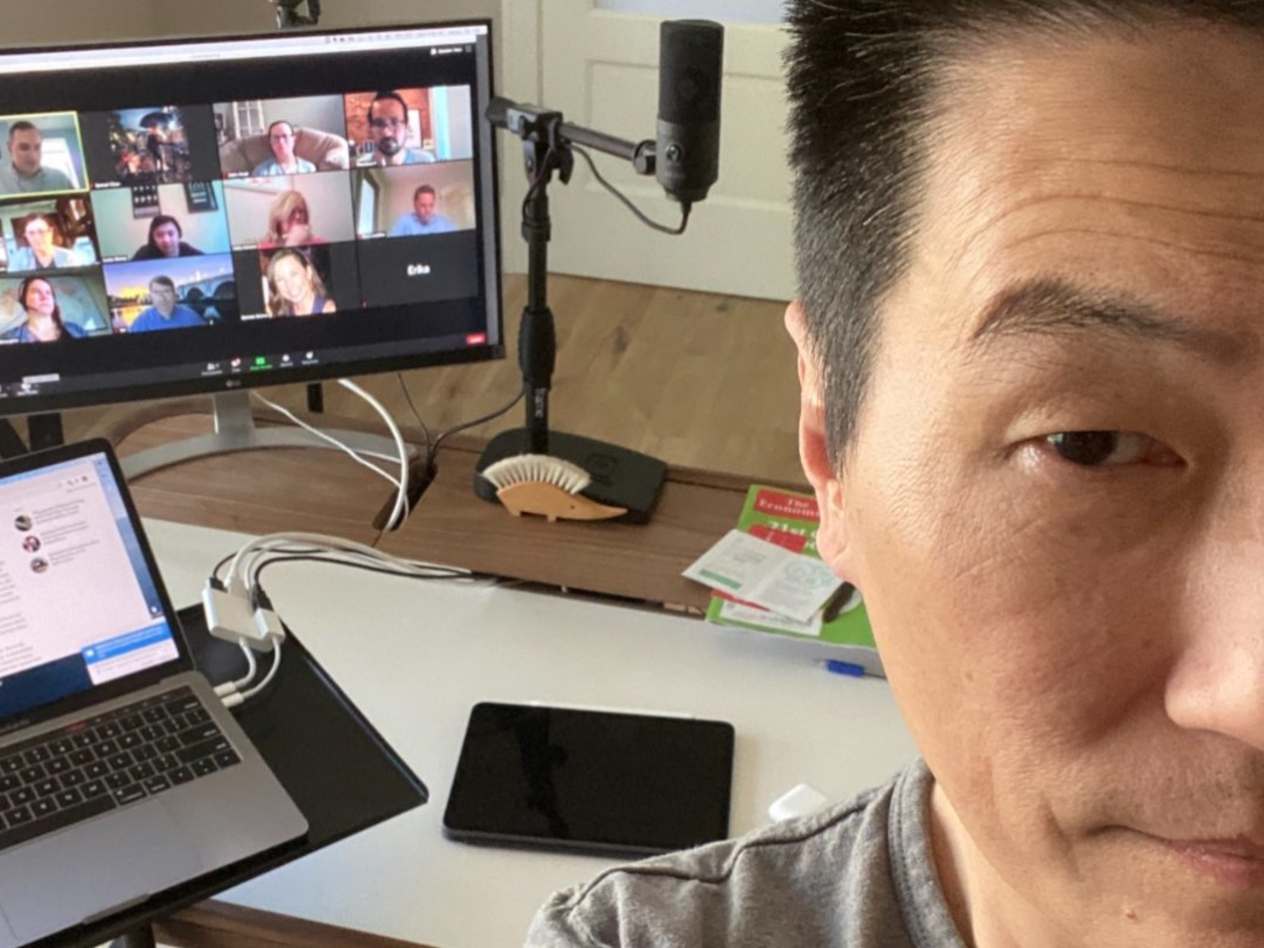Exec ed in the new world: “Waiting for this to end” isn’t an acceptable option
- October 12, 2020
- By Guest Author
- 3 minute read

Samuel Chun is assistant dean, director of executive education and a professor of management practice for WashU Olin Business School. In his role, he’s collaborating with colleagues from the business school and the Brookings Institution to transform how executive education is delivered during the coronavirus pandemic and beyond. He responded to questions for the Olin Blog.
How has the pandemic affected the way your team thinks about executive education?
Well, it’s been a transformation. First of all, the core of our activity until February 2020 was the face-to-face executive education offering that’s been every school’s standard—emphasis on “was.” Obviously, that’s not possible for probably another year or so.
So, everything we’ve managed to save has been converted to some kind of electronic delivery. A few years ago, Professor Tom Fields and I experimented with virtual programming. While it worked well enough, I think the assessment was that without face-to-face, the networking aspect really fell off. Really, until seven months ago, no one actually thought executive education could, or should, be done electronically.
Now there’s no choice: we are all learning how to teach, learn and network in novel ways.
Samuel Chun
How do you see your offerings evolving over the next few years?
What we’re mostly doing right now is what we call “virtual education.” In essence, that means taking our standard classroom materials and piping it through a platform, like Zoom, or Teams. Once we can get back to face-to-face, I think most of that will go away.
Someday, executive education may offer purely online, asynchronous programming that people can take whenever they want, but that’s a pretty full and competitive space.
So, “online” is probably a longer-term proposition. What we’ll probably develop and keep are “digital executive education” programs, which combine our live [electronic] connections with asynchronous online content. I think that’s a viable—and value-adding—proposition for several of our clients. Digital education will be here to stay.
In a recent Olin town hall, you mentioned that the Center for Digital Education has developed a learning management system for use with outside clients. Tell us more.
Ray Irving and his CDE team have been developing a Canvas-like platform (Learn.Washu) we can use for non-WashU affiliates such as corporate clients. It’s phenomenal, and they’ve made incredible progress since we piloted it during the MBA program’s global immersion experience last year.
It’s got course material storage and delivery, interactive communication features, video capabilities, announcements and a lot more. It helps us integrate our clients into the Olin community, which is something our Washington University systems don’t allow.
On top of that, it will have an alumni/lifelong learning area that will also be accessible to our clients. That’s a kind of continuity that we’re really looking forward to being able to offer.
So where does executive education go from here?
Well, the first priority is to re-engage clients who’ve elected to postpone until the pandemic is over. Basically, I’ve heard our physician community suggest this is not going away anytime soon, so “waiting for this to end” isn’t an acceptable option for any company that wants to keep up with executive development.
The next thing would be to continue expanding our offerings in the digital space. Finally, broadening our geographical (and client) reach is definitely something we’re already pursuing. I think digital education and Learn.Washu will take us a long way towards those goals.
Media inquiries
For assistance with media inquiries and to find faculty experts, please contact Washington University Marketing & Communications.
Monday–Friday, 8:30 to 5 p.m.
Sara Savat
Senior News Director, Business and Social Sciences
